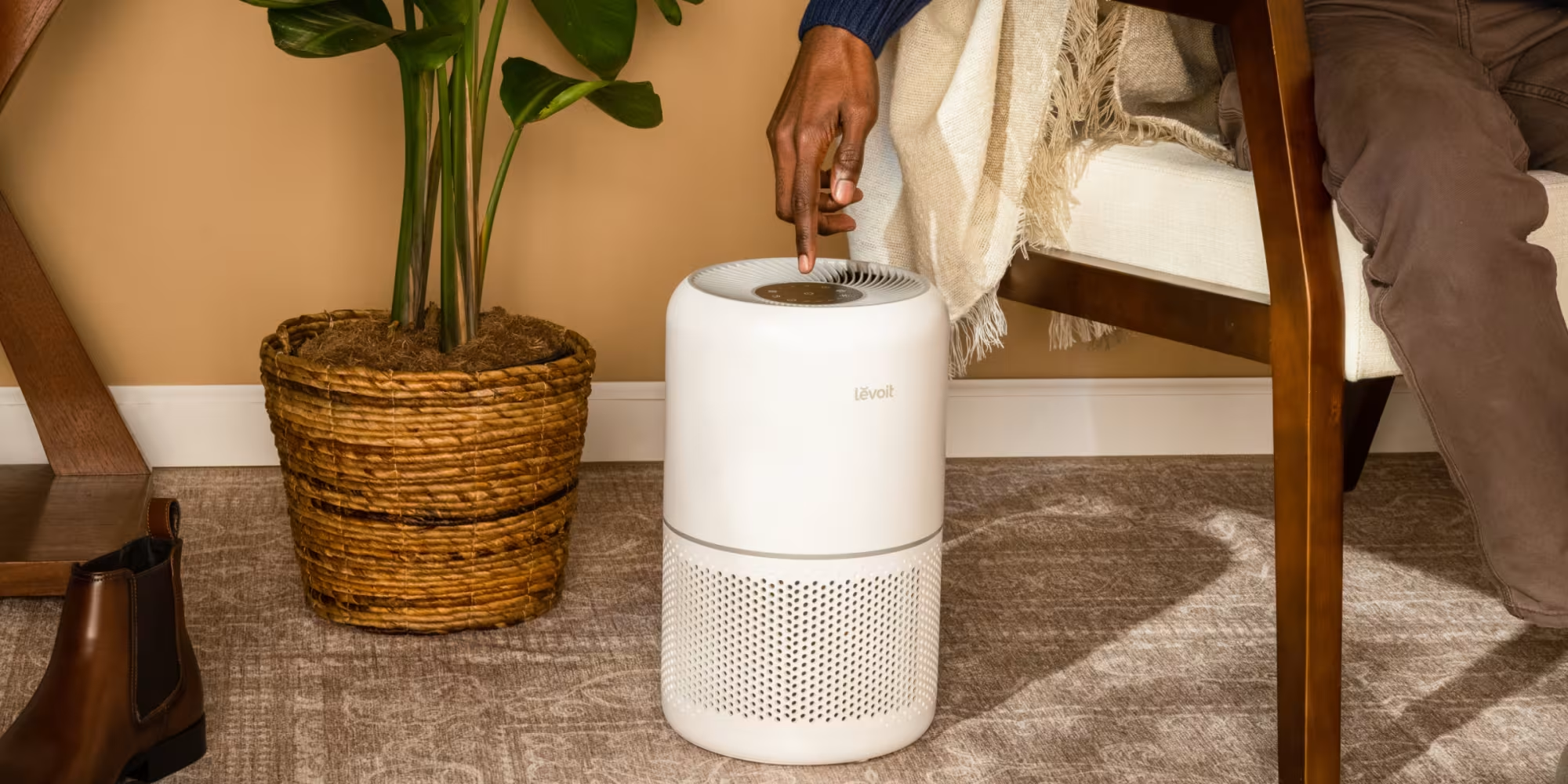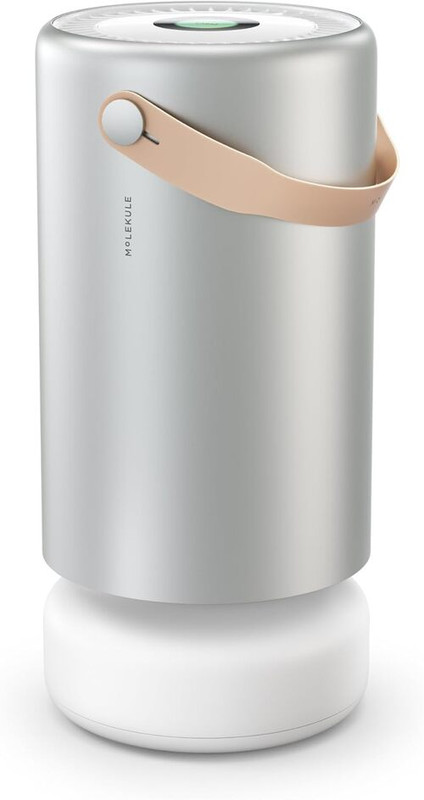
In today’s fast-paced world, indoor air quality is often overlooked, yet it plays a critical role in our overall well-being. Many people spend up to 90% of their time indoors - whether at home, at work, or in transit - and the air in these environments can be two to five times more polluted than the air outside. With allergens, dust, volatile organic compounds (VOCs), pet dander, mold spores, and bacteria constantly circulating in indoor spaces, investing in an air purifier is no longer a luxury - it’s a necessity.
Air purifiers are specifically designed to remove pollutants from the air and create a cleaner, healthier environment. But their benefits go far beyond simply reducing dust levels. They can significantly help with allergies, asthma, sleep quality, productivity, and mental well-being.
In this comprehensive guide, we’ll explore how air purifiers work, why they’re essential in modern living, and how they support better health and productivity. We’ll highlight some of the best models currently on the market.
Before we dive into the technology, let’s consider why clean air is vital. Poor indoor air quality has been linked to numerous health issues, including:
• Respiratory problems like asthma and bronchitis
• Allergic reactions such as sneezing, runny nose, itchy eyes
• Headaches and fatigue
• Sleep disruption
• Decreased cognitive performance
• Long-term cardiovascular and neurological conditions
Indoor pollutants come from various sources: cleaning products, cooking, tobacco smoke, paint, building materials, and even our furniture. In areas with poor ventilation, these pollutants build up and become concentrated, making them even more hazardous.
Most modern air purifiers rely on a combination of filtration technologies to clean the air:
• HEPA Filters (High-Efficiency Particulate Air): Capture 99.97% of particles as small as 0.3 microns, including pollen, dust mites, mold spores, and pet dander.
• Activated Carbon Filters: Remove odors, smoke, and chemical fumes by adsorbing gases and VOCs.
• UV-C Light: Destroys airborne bacteria, viruses, and mold spores.
• Ionizers: Emit negatively charged ions that attach to airborne particles, causing them to settle out of the air or stick to a collection plate.
• Pre-Filters: Capture larger debris such as hair and dust, extending the life of HEPA filters.
Some models combine multiple technologies for maximum effectiveness.
1. Relief from Allergies and Asthma
One of the most common reasons people invest in air purifiers is to alleviate allergy and asthma symptoms. HEPA filters are effective at removing allergens like pollen, pet dander, and mold spores. By reducing the allergen load in your home or office, air purifiers minimize immune system triggers and allow sufferers to breathe more easily. For asthma sufferers, an air purifier can prevent attacks triggered by airborne irritants. Look for models certified as asthma- and allergy-friendly by organizations such as the Asthma and Allergy Foundation of America (AAFA).
2. Improved Sleep and Mental Clarity
Air quality affects sleep more than most people realize. Dust, pollen, and pet dander can irritate airways during the night, causing snoring, coughing, or disrupted sleep. Cleaner air promotes deeper, more restful sleep. Furthermore, studies show that poor air quality can impair cognitive function. Cleaner air enhances mental clarity, alertness, and mood — all critical for optimal productivity whether you're at work or working from home.
3. Odor and Smoke Elimination
Air purifiers with activated carbon filters are excellent at removing odors from cooking, pets, smoke, and household chemicals. If you live with smokers or near high-traffic roads, air purifiers can make a noticeable difference in air freshness.
4. Protection Against Airborne Diseases
Certain models with UV-C light or PECO (photoelectrochemical oxidation) technology can destroy viruses, bacteria, and mold. While air purifiers should not be your only line of defense during flu season or a pandemic, they can be part of a broader strategy to reduce airborne pathogens in indoor environments.
5. Reduced Dust Buildup and Cleaning Time
A bonus: less dust on surfaces means fewer chores. With the air constantly filtered, dust settles more slowly on furniture and electronics, reducing the need for frequent dusting.
When selecting an air purifier, it's important to consider factors such as the size of the room you plan to use it in, the type of filtration it offers, the noise level during operation, and whether or not it includes smart features. Here are some of the most highly recommended models available in 2025, each catering to different needs and preferences.

One standout choice is the Dyson Purifier Cool TP07, an ideal option for stylish, modern homes and tech enthusiasts. Retailing at approximately $600, this model offers HEPA and activated carbon filtration combined with a bladeless cooling fan. It also includes real-time air quality monitoring, app control, and compatibility with Alexa. Its sleek design, quiet operation, and multifunctionality make it a favorite for those seeking both performance and aesthetic appeal.

Another excellent option is the Coway Airmega AP-1512HH, widely regarded for delivering impressive performance and value. Priced around $230, this unit features a True HEPA filter, an odor-absorbing carbon filter, and an air quality sensor. It includes an Eco mode and automatically adjusts fan speed depending on air quality. It’s particularly suitable for spaces up to 361 square feet and is frequently praised for its quiet operation and energy efficiency.

For those looking for smart home integration without breaking the bank, the Levoit Core 400S is a top contender. It’s well-suited for medium to large rooms and is priced at approximately $220. This model uses an H13-grade HEPA filter and includes app control, compatibility with Alexa and Google Assistant, and ultra-quiet operation during its sleep mode. It delivers premium features typically seen in higher-end models at a more accessible price point.

If you’re purifying a larger space, consider the Blueair Blue Pure 211+, which can handle rooms up to 540 square feet. This model is priced at around $320 and features a HEPA-like particle filter, carbon filter, and a washable pre-filter. It boasts a high Clean Air Delivery Rate (CADR), is energy efficient, and offers user-friendly one-button operation. It’s a solid choice for those who prioritize simplicity and performance in larger living areas.

For a more advanced, medical-grade solution, the Molekule Air Pro enters the high-end market at about $1000. Unlike traditional air purifiers that trap particles, this unit uses PECO (photoelectrochemical oxidation) technology to destroy airborne pollutants at a molecular level. Equipped with particle sensors, real-time air quality feedback, and app control, this model is especially beneficial for users with extreme sensitivities or chronic respiratory issues. It provides peace of mind by actively eliminating viruses, bacteria, mold, and VOCs.

Lastly, the Honeywell HPA200 is a reliable option that’s especially popular among allergy and asthma sufferers. With a price tag of approximately $220, this air purifier features a True HEPA filter and offers three levels of air cleaning, including a Turbo setting. It effectively covers rooms up to 310 square feet and is consistently recognized for its high performance in reducing allergens and airborne irritants.
Each of these air purifiers offers a unique blend of filtration power, design, and convenience. Whether you're looking to cleanse a compact bedroom or a spacious open-plan living area, there's a model to match your needs and budget. Investing in the right air purifier today can result in noticeable improvements in health, comfort, and day-to-day quality of life tomorrow.
With the rise of hybrid and remote work, indoor air quality in home offices and workplaces has become more relevant. Cleaner air can lead to:
• Fewer sick days: Reduced exposure to germs and irritants means fewer illnesses
• Enhanced concentration: Better oxygen flow helps maintain energy and focus
• Lower stress levels: Clean air improves mood and reduces physical stress from poor respiration
In office environments, air purifiers can also signal a company's commitment to employee well-being and productivity. Some modern purifiers integrate seamlessly with smart office systems to monitor CO2 levels and regulate indoor air in real time.
An air purifier is more than just a device—it’s an investment in your health, comfort, and long-term quality of life. Whether you're trying to relieve allergies, sleep better, concentrate more at work, or simply reduce indoor odors and dust, the right air purifier can make a noticeable difference within days.
From stylish models like the Dyson TP07 to budget-friendly champions like the Coway AP-1512HH, there’s an air purifier to suit every lifestyle and space. And as urban living becomes denser and pollution levels rise globally, having a dependable air-cleaning system at home is becoming as essential as clean water or proper lighting.
Breathing better isn’t just about comfort—it’s about living better. Cleaner air leads to a clearer mind, healthier body, and a more productive day, every day.
If you're looking to explore air purifiers that suit your specific needs or want to compare prices, check out our curated Air Purifier Collection on sales365days.com. Our team regularly tests and reviews new models to help you make smarter choices for your health and home.
Disclaimer: Some of the links on this page are affiliate links, meaning that, at no additional cost to you, we may earn a commission if you click through and make a purchase. As an Amazon Associate, we earn from qualifying purchases #ad #commissionsearned